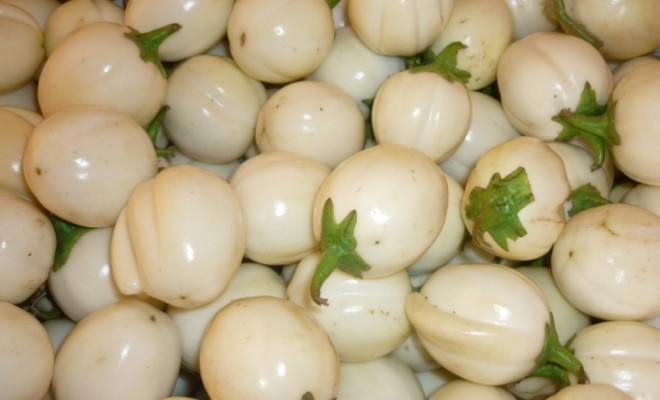The cultivation of eggplant, popularly known in Nigeria as garden egg, is gradually becoming more interesting and lucrative because the population of its consumers continues to grow.
Growers of garden egg now believe it can largely be done for economic purposes unlike before when it was largely cultivated for domestic consumption.
- Farmers, small businesses get CBN’s interest free loans
- Reps seek relocation of oil tank farms as NNPC seeks time
Many believe garden egg got its name from its egg-shape, as well as the white complexion associated with some of the varieties.
Some people eat the fruit raw, some with groundnuts, while some eat it cooked as sauce eaten with other foods. In any case, medically, garden egg, especially the green variety, is said to contain chlorophyll, which is liver-friendly, and contains alkaline, which is good for ulcer patients.
How to cultivate it
A garden egg farmer, Edward Yaro, advised that farmers should first clear land of grasses and debris, and that loamy soil remained the best for garden egg.
Yaro further advised that the land should not be tilled lower than 20 to 25cm.
He said, “You can plant it by raising a nursery or you can even plant it directly. You should plant it early in the morning or late in the evening.”
The farmer explained that for direct planting, two seeds should be planted per hole, and that on the ridges, 60cm between the plants must be given.
Depending on the variety, Yaro said flowering/fruiting starts from six to eight weeks of planting and would continue to develop till about 10 to 12 weeks when it would be due for harvest.
He advised farmers to weed their garden egg farm regularly and must add enough manure for higher yield.
According to him, bacteria wilt and fruit rot are the major problems for garden egg, but that they could be controlled by removing the affected fruits or spraying the plant with chemicals.
Why you should grow it
Mr. John Idako, a garden egg farmer in Garam, a Niger Sate community, said a rural family could live on garden egg cultivation because the fruit was easy to plant and that it took a short period to mature.
Idako said one could continue to harvest garden egg for more than four months and that both the fruit and the leaf could be sold.
The farmer said market for garden egg could now be found in all fruit markets across the country, adding that many more people now ate it.
He noted that unlike other fruits, garden egg does not get spoilt easily and that because it was usually within the reach of the common man, its market was booming.

 Join Daily Trust WhatsApp Community For Quick Access To News and Happenings Around You.
Join Daily Trust WhatsApp Community For Quick Access To News and Happenings Around You.


